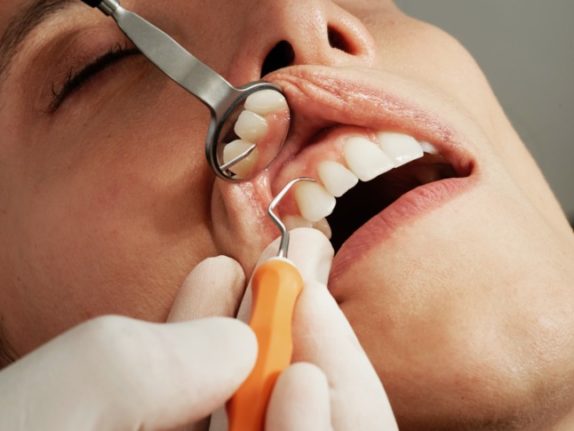Going to the dentist can be painful in more ways than one.
New figures from Statistics Norway’s living conditions survey have revealed that 17 percent of people have avoided getting their teeth looked at because they think it’ll be too expensive.
“It is very difficult and painful to see people with major health problems, who, due to financial constraints, do not receive the necessary health care,” Hallgeir Ulsaker, a dentist in Drammen, told NRK.
He added that he’d had a few patients opt out of treatment due to the costs involved.
Dentistry is not included in Norway’s subsidised healthcare system. Those under 18 receive free dental treatment, and those between 18 and 20 have their treatment subsidised. Everyone over 20 pays full price, although it is possible to apply to the Norwegian Labour and Welfare Administration (NAV) for financial assistance with specific treatments.
READ ALSO: How much does going to the dentist cost in Norway?
“I was shocked when I saw the numbers,” newly elected MP for the Socialist Left Party, Kathy Lie, told NRK.
Lie’s party, which will most likely be a part of Norway’s next coalition government, has made dental health a vital issue and wants to impose a maximum cost on trips to the dentist.
“We have this belief because teeth are a part of the body. Therefore, you should not pay more to go to the dentist than to the GP,” Lie explained to the broadcaster.
Dentists have welcomed the possibility of care becoming cheaper. However, they said, in reality, this would be very difficult to achieve.
“A dental system similar to the GP scheme would be nice professionally. However, the downside is that there can be a lot of bureaucracy involved,” dentist Ulsaker explained.
Others said cheaper dentistry would be hard to put into practice.
“It’s about time politicians looked at this. But before you start tinkering with things, you need to take a look at the complete system,” Morten Harry Rolstad, Secretary-General of the Norwegian Dental Association, told NRK.
He added that when dentists set up practices, they do so without any public sector money. He explained that to make dentists move into the public sector, all the private investments practitioners have made would need to be paid up.
Rolstad said this would cost somewhere in the region of 12 billion kroner to do.
“If the authorities have the 12 billion to put on the table, then we will help to find out where the funds can be used in the best possible way,” the general secretary said.



 Please whitelist us to continue reading.
Please whitelist us to continue reading.
Member comments